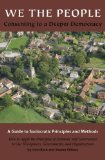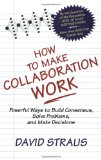
Mel the disheveled writer at a NaNoWriMo write-in in November 2007, where I began "Cold." I already had my 50K the day before, but the writing I did at this write-in & up to 3 AM that night -- to the tune of an additional 3455 words -- was some of my best.
Cold and Long Dark
|
There are several cool things I could do tonight of a (contemporary) political nature:
- I could attend the UAA Polaris Lecture I just advertised in my last post: Cliff Groh speaking on the wide-ranging federal investigation of public corruption in Alaska.
- I could head over to Bernie’s Bungalow Lounge to be part of the taping of Shannyn Moore’s weekly TV show Moore Up North. Tonight’s taping will feature a citizen panel drawn from people who email Shannyn today to explain why they’d make a great panelist.
- I could stay home & finish the great-grandmother of all Sullygate timelines that I mentioned the other day I was preparing.
But I am doing none of those things. Instead, I’ll be heading over to Denny’s to join my NaNoWriMo peeps for an evening of writing.
NaNoWriMo, as I’ve mentioned before, stands for National Novel Writing Month — an annual month-long (& actually international) event which calls upon its participants to write 50,000 words of a “novel” over the course of November — the equivalent of about 6 pages double-spaced for each of the 30 days of November. I did it first in November 2007 as a way to get my writing chops back; started it in November 2008 but didn’t complete that year due to personal issues; & did it again last November. The 2007 & 2009 NaNos are where my science fiction novels-&-stories-in-progress Cold and Long Dark originated.
But this is March, so why am I getting together with my NaNoWriMo buds tonight? Well, back in November 2007 as that year’s NaNo came to an end, we decided amongst ourselves that we would continue to meet for a write-in throughout the year every third Thursday of the month. And today’s third Thursday. I hold it sacred. So no contemporary politics for me tonight.
But please note the qualification: contemporary politics. I’ll still be present in the political world, just not the one I’ve been involving myself in with my work on understanding Sullygate, or reminding people about the federal probe into Alaska public corruption, or saying anything (ack!) about Palin, or preparing an update on Miller v. Carpeneti, the rightwing lawsuit against the Alaska Judicial Council that’s attempting to toss out part of Alaska’s Constitution. (The suit was dismissed in District court, but has been appealed to the Ninth Circuit; I’ll be uploading briefs in the case over the weekend.)
The political world I’ll be present in tonight is my invented Consensus society that I’ve been building into the story universe of Long Dark & Cold, as I’ve partially described in a couple of earlier posts (“Good for my worldbuilding, bad for my world” and “Building Consensus”) — a society based on governance by consent, in which every individual without exception has a say in every decision that affects their life and work. I’ve just completed reading a couple of books about collaborative decisionmaking & consensus-style governance, both of which have greatly enriched what I know about how my invented society runs itself — & also sent me into a paradigm shift with regard to the dysfunctional government & politics — local, state, national, & international — that we’re all putting up with right now. I just finished reading two books in my reading list —
- How to Make Collaboration Work: Powerful Ways to Build Consensus, Solve Problems, and Make Decisions
by David Straus (San Francisco: Berrett-Koehler Publishers, 2002) - We the People: Consenting to a Deeper Democracy — A Guide to Sociocratic Principles and Methods by John Buck and Sharon Villines (Washington, DC: Sociocracy.info Press, 2007)

 — which I will be writing more about after I finish my Sullygate timeline. And I think I’ll be putting together a bibliography on consensus & sociocracy stuff too — a bibliography fitting not only to my background research for writing, but also to exposing other people, I hope, to some stuff that works a whole lot better than the messy adversarial way we’re trying to run things now. All in all, learning about this stuff & writing it into my fiction — & in nonfiction commentary on my blog — seems a whole lot more important in the long term than any of the other political stuff I’ve written about — however important that stuff is in the short term.
— which I will be writing more about after I finish my Sullygate timeline. And I think I’ll be putting together a bibliography on consensus & sociocracy stuff too — a bibliography fitting not only to my background research for writing, but also to exposing other people, I hope, to some stuff that works a whole lot better than the messy adversarial way we’re trying to run things now. All in all, learning about this stuff & writing it into my fiction — & in nonfiction commentary on my blog — seems a whole lot more important in the long term than any of the other political stuff I’ve written about — however important that stuff is in the short term.
At the moment I’m writing a story in the Long Dark end of things (that is, in a time period about 3 centuries before the events of Cold), working title “Asura,” about the murder of one of my principal characters Jyoti by a confused young man who is attempting to effect an intervention by the Hindu god Shiva. Yep, really. (See my post “Storyminded” for what I’ve previously said about this story.) Jyoti is a farmer of sorts — a “farmer in the sky” who is expert in the production of food within a closed ecological life support system (CELSS) (which, yep, I’ve written about this before too, in my brilliantly named post from last September, “Eating (& breathing & crapping) in outer space”, and in a second one just before last NaNovember, “Taking life support for granted”)— that is, an artificial biosphere such as what would be required for human survival in one of the sublight interstellar space ships that Jyoti & her community live in as they cross the Long Dark from our solar system to the next one. Jyoti’s murder is a resounding shock to the community of the ship Celeritas, & not only to her partner, Esti Gusev. But what do you do with a murderer in a CELSS? And what do you do with a murderer in a society that governs itself according to sociocratic principles of consent? And how do you address the needs of the victim’s survivors? Here’s my chance also to mess around with how practices of restorative justice might play themselves out in a sociocratic society.
So nonpolitical? Not hardly. Just not contemporary.
Should be fun.

